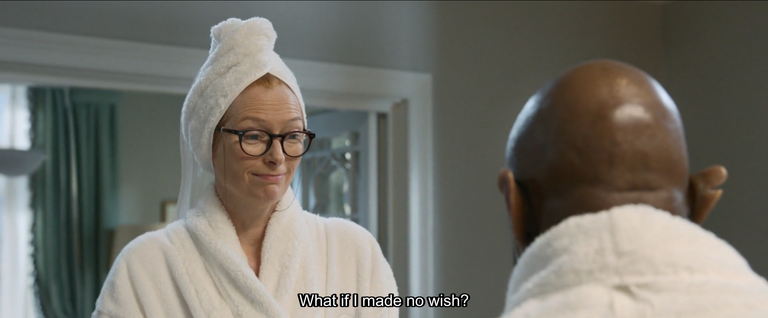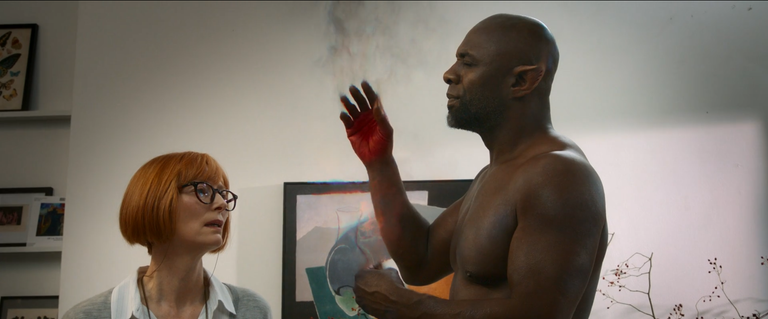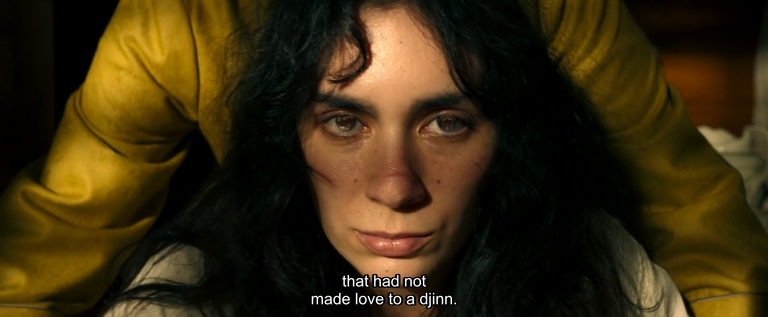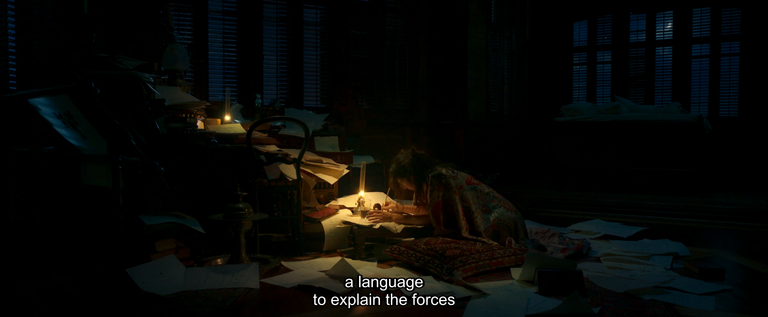If you somehow found a lamp and a genie popped up, ready to grant you three wishes, would you know exactly what to wish for? Maybe unlimited money, power, or love. But it's unlikely nothing, as people are hardly without desires. But Dr. Alithea is rather different, having neither desire nor wish for the genie to grant.

And that was the scene I found on YouTube that had me searching for the film to watch. Dr. Alithea, the main character, had no wish in this clip, and that caused a "catastrophic" situation for the genie. Intriguing, so I went to watch the entire film for myself. But what I was most interested in was seeing how Three Thousand Years of Longing would be different from the classic Aladdin story.
Dr Alithea Binnie encounters a djinn in Istanbul who offers her three wishes in return for his freedom. However, she takes the djinn by surprise when she expresses her desire. Google

Three Thousand Years of Longing—a bit of a mouthful—had me right from the beginning. Alithea seeing djinns in public, and no one else would, was spooky, and it had me intrigued quickly enough. And then soon, though, we move on to some magical things. I thought that was a good start.
Right off the bat, I'll say that what I liked the most was the visual effects and the effort they put into making it an Aladdin-like live-action film. For example, Albert Einstein was brought from the past. But that doesn't exactly sit well with me. I enjoyed the majority of the film for its thrills and entertaining drama and magic, but something felt off.
The Djinn told stories of his incarnations—the times he had different masters, people that found his lamp (or bottle), and he owed three wishes each—what his life was like then and how he's been waiting for thousands of years to be free. The good part of the film was in those stories. And they did something interesting about it.

One of the stories dates back to the time of King Solomon and his interaction with Queen Sheba. How they went about that was totally different from the actual Bible story; they gave it a really different fictional twist. And in another story, I saw a passionate mathematician and physician work with electromagnetic equations that I mastered at some point in the university. That surely drew my attention.
It was all fun and good for most of the film. But when the stories were over, things began to fall apart. I couldn't make much sense of the film and its direction. Some of the things in the dialogue between Alithea and the djinn were vague many times.
When I thought again about the stories the djinn told, I really couldn't even find an exact relevance. As a matter of fact, some of the things in the story didn't even add up. For example, when the djinn first got trapped in the bottle by a great magician, the reason was very ambiguous. As I write, I don't have an exact idea why the Djinn was trapped. It just happened.

The ending, well, didn't make much sense. Things happened that I couldn't point to their explanation, so it was mostly flat. To think I probably misunderstood the film; a friend that had watched it before me also remarked, "I didn't exactly understand the film."
If it is just to see random magical things and to be entertained by fascinating fictional stories, maybe the film will do. But the vagueness it carries takes away the juice at some point and leaves the film bland. The title doesn't even help anyway. And my expectations of it in relation to Aladdin—in the mud.
